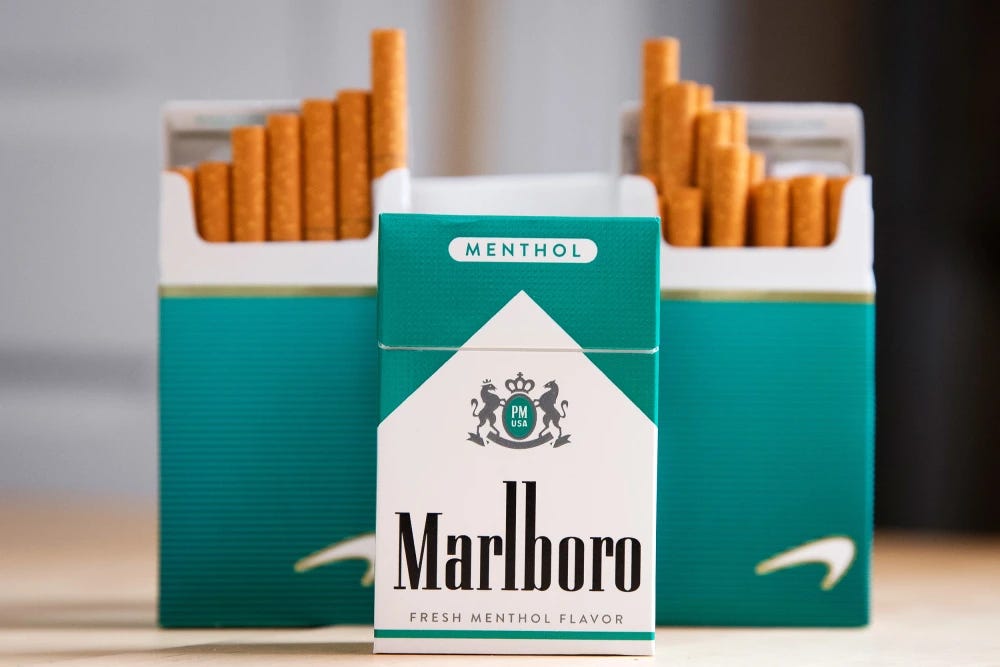Biden Faces Criticism for Failing to Ban Menthol Cigarettes After Trump Withdraws Proposal
Health advocates express disappointment as Biden’s administration delays menthol cigarette ban indefinitely.
WASHINGTON, D.C. — President Joe Biden is facing sharp criticism after his administration failed to finalize a ban on menthol cigarettes, a decision that has left public health experts and advocates disappointed. The proposal to eliminate menthol cigarettes, which had been welcomed by the medical community, was initially introduced in 2021. However, after multiple delays, the Trump administration officially withdrew the rule last week, leaving menthol cigarettes on the market indefinitely.
Flavored cigarettes have been banned in the U.S. since 2009, but menthol — which enhances flavor and reduces throat irritation, making cigarettes easier to smoke and more addictive — remained the exception. Public health experts had expected the ban to be finalized by summer 2023, but the Biden administration postponed the deadline several times, citing the need for more time to review the feedback from public consultations.
The American Lung Association (ALA), a leading authority on lung health, has expressed frustration with Biden’s inaction. Thomas Carr, the ALA’s national policy director, called the delay a missed opportunity and accused Biden of succumbing to pressure from the tobacco industry.
“We’re incredibly disappointed in former President Biden for bowing to tobacco industry pressure,” Carr said. “This failure to act will result in continued death and disease from smoking, which claims the lives of more than 490,000 people in the U.S. each year.”
The ALA’s annual “State of Tobacco Control” report, released Wednesday, highlighted the impact of Biden’s inaction, labeling it a clear example of the tobacco industry using its influence to protect its profits at the expense of public health.
In response to the delay, Xavier Becerra, Secretary of Health and Human Services, explained last year that the administration had received significant feedback from various sectors, including civil rights and criminal justice organizations, requiring further discussions before moving forward with the ban.
Massachusetts, California, and Washington, D.C., have already implemented state-level bans on menthol cigarettes, while other states like Oregon and Washington are considering similar measures. However, the primary argument against a national ban has centered around concerns that it could lead to an illegal menthol cigarette market, disproportionately impacting communities of color. Data from 2020 shows that approximately 80% of Black adult smokers used menthol cigarettes.
Diane Goldstein, Executive Director of the Law Enforcement Action Partnership, expressed concerns that a national ban could exacerbate over-policing in these communities. She warned that such a ban would fuel negative interactions between police and residents, drawing parallels to the war on drugs.
However, Sarah Mills, a professor studying racial disparities in tobacco use, argued that this narrative was largely influenced by the tobacco industry. Mills pointed out that tobacco companies have been known to fund Black civil rights organizations, which have lobbied against the menthol ban. She also noted that advertising for menthol cigarettes is more prevalent in neighborhoods with higher populations of Black residents.
While the proposal to ban menthol cigarettes failed to gain traction, tobacco companies have voiced support for the Trump administration’s decision to withdraw it. Luis Pinto, Vice President of Communications at Reynolds American, argued that prohibition-style policies do not work, while David Sutton of Altria stated that criminalizing menthol cigarettes could lead to an illicit market and undermine public health efforts.
Despite the setback, health advocates are calling for other measures to address smoking-related harm. The ALA’s report urges the Food and Drug Administration (FDA) to implement a tracking system for counterfeit tobacco products and for Congress to pass legislation requiring e-cigarette manufacturers to fund the FDA’s regulatory activities.
The FDA has not provided comment, as the Trump administration’s health officials have directed federal agencies to pause public communications until February 1.


